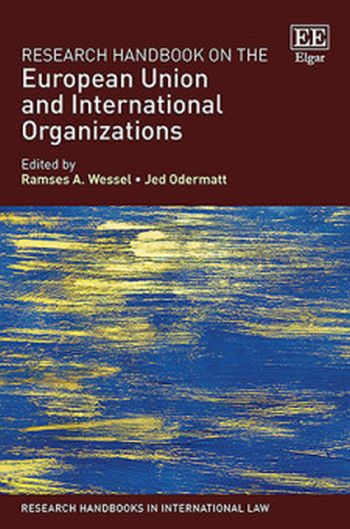
The European Union has established relationships with other international organizations and institutions, mainly as a result of its increasingly active role as a global actor and the transfer of competences from the Member States to the EU. Containing chapters by leading scholars, this Research Handbook presents a comprehensive and critical assessment of these relationships, examining both the EU's representation and cooperation as well as the influence of these external bodies on the development of EU law and policy. Insightful and analytical, the Handbook explores the interaction of the EU with both formal and informal international institutions as it seeks to become more visible and active within these. The many challenges associated with the limits set by the EU and by international law and politics in relation to EU participation and the 'state-centred' international legal system are assessed.
This unique Research Handbook will be a key resource for scholars and students of international and European law and political science, providing a unique overview of the less well known international organizations in addition to the large institutions. The examination of the development of law and policy will also be of interest to the practitioners of these organizations and those at national ministries.